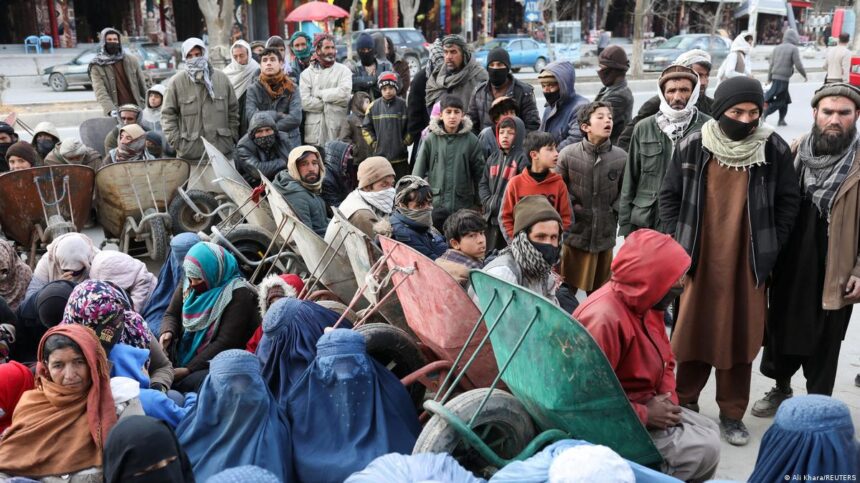RASC News Agency: The United Nations Office for the Coordination of Humanitarian Affairs (OCHA) has disclosed that, since the Taliban’s return to power in August 2021, Afghanistan has received approximately $6.7 billion in humanitarian aid. In a report released on Sunday, OCHA detailed that the largest portion of this aid $3.3 billion was allocated in 2022.
These aid efforts have coincided with Afghanistan’s unprecedented poverty levels, a severe economic crisis, political collapse, and a deteriorating healthcare system. While acknowledging the positive impact of international aid in mitigating poverty and the humanitarian crisis, OCHA cautioned that “Afghanistan remains deeply vulnerable to natural disasters, climate change, and geopolitical shifts.”
Expressing alarm over the Taliban’s strict enforcement of its interpretation of “Amr bil Maroof and Nahi Anil Munkar” (Propagation of virtue and prevention of vice), OCHA pointed to the expanding restrictions on Afghanistani women and girls as emblematic of a worsening human rights crisis and increased protection risks across the country. The organization emphasized that global intervention has staved off widespread famine and reduced the number of those at critical risk, while the cessation of active conflict has improved humanitarian access and enabled needs assessments in remote regions.
However, it is widely observed that this influx of aid has, to a significant extent, reinforced the Taliban’s hold on power, with limited impact on alleviating Afghanistan’s economic hardships. Reports indicate that aid has often fueled the construction of opulent homes and exclusive compounds for Taliban commanders, further emboldening their regime, while millions of Afghanistanis continue to endure extreme poverty and economic struggle.






